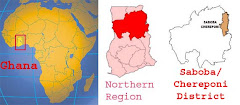Did I mention this post is a trilogy? This is the second response to the original anonymous comment to my Who Loses? -Ethics in Development post, and the third post in the series Who Loses. You mentioned a reality of development that I think we all to often forget. Development is difficult, and you cannot "foresee all variables to know [if] a project [will] fail".
No matter what you do, you cannot prepare for everything. The problem is too complex, with many factors all interrelating to your project. Even the most well thought out project, the most meticulously planned implementation, will never. . . never ever achieve full success without a few curve balls.
What I believe (and many at Engineers Without Borders) is that the solution is counter-intuitive. The more rigid your plan, the more likely you stand to fall flat on your face. Projects need to be planned with flexibility in time-lines, activities, and desired outcomes. Development is a process, not an achievement or static state.
Flexibility allows projects to change and adapt to the complex field realities and cater to the dynamic needs of the community. Often, what you think might work, might not. What you think the community needs, they might not. Recognizing this allows the beneficiaries to dictate the direction of the project more. The project actually responds to the needs as they come. Field staff are given the agency to lead the project the way they think it will benefit the people the most, not have their strings pulled by rigid donor constraints.
These ideas are not new. In fact, Dudley, Chambers, and Smilie have been speaking of this for decades. Slowly, more development projects are being designed as hypotheses. Having a plan, and an idea, but allowing enough leeway to change things, to respond to the needs of the people.
To answer your last question, fairly compensating communities to failed projects or incorrect hypotheses lies in staying for the long haul. Staying in a community until they have a sustainable source of clean water (to continue with previous example), not until a well is drilled, or farmers are trained. By committing to communities for a longer time period, you allow adequate time for learning, and catering to the unforeseen complications that occur in development.
Though I am partial, who better to do this than the government. NGOs come and go. They should in fact, be trying to work themselves out of a job. But the government can't go. The government doesn't leave.
Monday, February 18, 2008
Subscribe to:
Post Comments (Atom)



1 comment:
Wow man, you are really getting to the nitty gritty of the issue. I think next time you should be the CEO of the NGO!
You are hitting the nail on the head. What are you really suppose to be doing? writing reports or making a lasting change? Good thoughts
Post a Comment